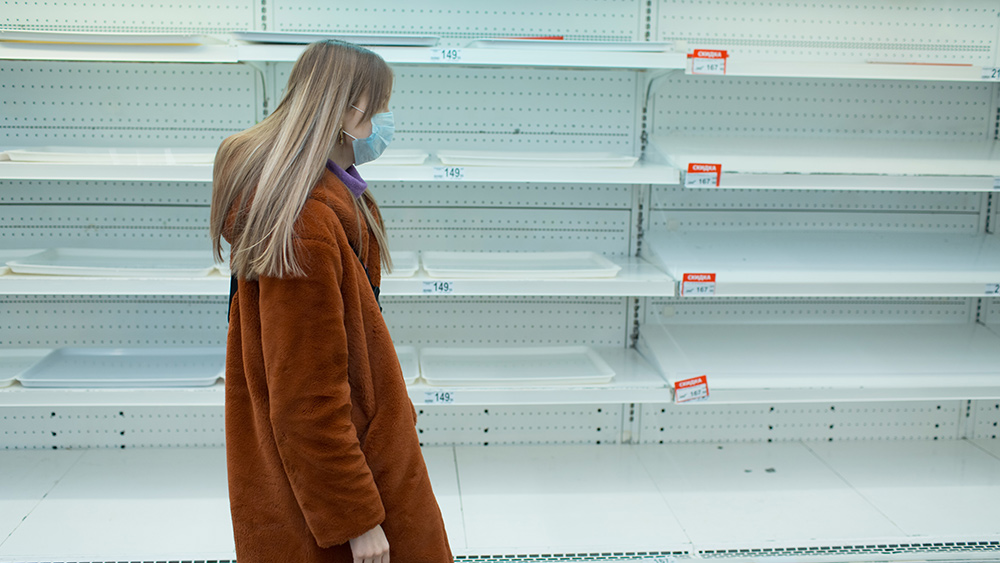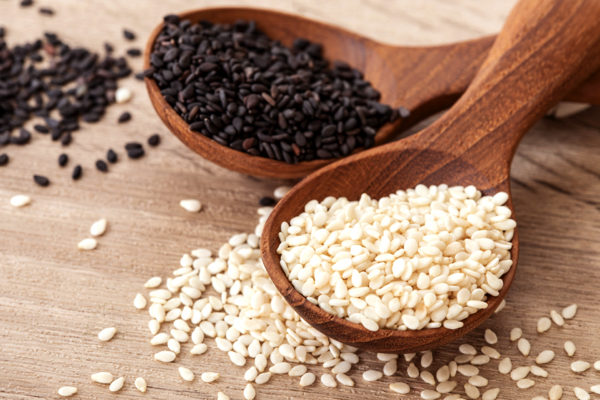Food shortages of meat, eggs, poultry, other commodities worsening in U.S. supermarkets amid new supply chain disruptions
American supermarkets continue to suffer shortages of food and other commodities as the supply chain crisis worsens thanks to new global lockdowns due to the omicron variant of the COVID-19 virus, despite the fact that it isn't serious.
Still, as workers get sick from the new strain, productivity has suffered and now, because Joe Biden's hapless regime has done little to nothing to get the supply chain back up and running, any little disruption becomes a big deal.
The
Los Angeles Times reports:
The highly contagious Omicron coronavirus variant is disrupting already stressed food supply chains, sickening so many workers that more shortages at grocery stores are all but certain.
Supermarkets have been struggling to keep food fully stocked throughout the pandemic as a result of labor shortfalls in every part of the food system, including farms, manufacturers and distributors. Now Omicron is bringing the problem to a new level. The variant is raging across the U.S. and raising health concerns that many thought vaccines had put to rest. Schools and day cares are seeing closures again, keeping more Americans from work.
Combined, all of those things are going to lead to higher wages as businesses try to attract enough workers, which in turn will result in higher prices for goods, worsening Biden's inflation.
“We’re already seeing bare shelves,” Bindiya Vakil, chief executive of supply-chain consultant Resilinc Corp., told the Times. “Labor shortages due to omicron are going to exacerbate the issue.”
The Times added that one grocery distributor in Grand Rapids, Mich., called SpartanNash Co., saw a tripling of sickness cases in recent weeks, with around 1 percent of the company's 18,000-strong workforce having reported catching the virus in recent weeks. That compares with around one-third of its staff just a few months ago, when the supply chain crisis was even worse. Employees who can work more are doing so, and while the company is fulfilling orders, it is doing so with delays.
“It’s harder because we’re asking people to work overtime,” CEO Tony Sarsam said in an interview. “We’re stretching ourselves.”
While meat producers are not currently reporting significant sickness issues, there are signs that they are not producing as much product,
which is contributing to the shortages.
"For instance, the number of hogs slaughtered so far this week was down 5.5% from a year ago, and cattle slaughter was down 3.6%, according to U.S. Department of Agriculture data Thursday," the L.A. Times reported.
Paula Soldner, chair of the National Joint Council of Food Inspections Locals, said: “The Delta variant didn’t have a whole lot of impact on the workforce,” she said, but “Omicron is nailing us.”
Other companies, meanwhile, are taking drastic measures to avoid having to shut down or reduce output. The Times reported that Conagra Brands, as well as Campbell's Soups, are seeing an uptick in COVID illnesses but they have been engaged in aggressive hiring campaigns.
“If people are out or people are quarantined as they’ve been since the beginning of COVID, we’ve got backup plans,” said Sean Connolly, CEO of Conagra Brands.
But that doesn't apply to every food company, and in fact, it doesn't apply to most.
John Brunnquell, CEO of Egg Innovations, the biggest producer of range-free eggs, says he has been short-staffed for nearly two years, ever since the pandemic began. And now, he doesn't want to do anything to make staffing shortages even more pronounced, such as implementing Joe Biden's unconstitutional vaccine mandate.
“Because it’s such a tight labor market, and because we’re already short of people, I don’t feel I have the ability to mandate it without losing a couple more,” he said.
In general, food in the U.S. is on a three-day supply chain; disrupt it for more than that,
and food riots will begin.
Sources include:
LATimes.com
 Parler
Parler Gab
Gab











